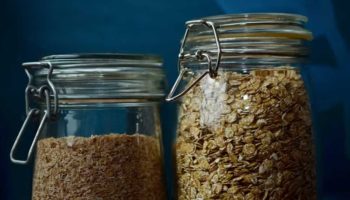Energy prices are rising and tips for saving electricity are more popular than ever. A new trick for saving energy in the home comes from Italy. And how could it be any different: it involves pasta!
The heating is turned off, fewer lights are switched on and hot water is also used more sparingly. Concerns about rising energy prices are forcing more and more people to rethink their electricity consumption.
However, there is one thing that is hard to do without: a hot meal a day. Fortunately, there is a simple trick to cooking more efficiently.
Italians love their pasta, so it’s no surprise that an Italian physicist of all people has shared the best tip for cooking pasta with us. Giorgio Parisi was awarded the Nobel Prize in Physics in 2021 and recently shared his knowledge with his Facebook community.
Here’s how the trick works:
According to Parisi, it is first important to leave the lid on the pot when heating the water. This already saves a lot of energy. Once the water is boiling, the pasta can be added as usual. They are cooked as normal at first, but then comes the trick: after two minutes, the stove is switched off and the pasta cooks in the hot water.
This energy-saving method only takes two minutes longer than the conventional cooking process. Example: You cook spaghetti, which normally takes 8 minutes in boiling water. So you first boil the spaghetti for 2 minutes, turn off the heat and then leave it to cook in the water for another 8 minutes. Your pasta will have taken a total of 10 minutes to cook instead of 8.
Logically, the water temperature drops after you switch off the hob, so the pasta will take a little longer. However, these two minutes shouldn’t bother you, as this trick will save you 47% energy when cooking pasta.
How to save a lot of energy while cooking? Here are 7 other tips to save electricity when cooking:
1. the right pot
Always use cookware that fits exactly on the hob. If the pot or pan is smaller than the hob, energy is wasted. If the surface to be heated is larger than the hob, it will take longer to heat up, which is also uneconomical. The size of the cookware should also match the dish. A huge pot for a handful of pasta is a waste.
2. new cookware
New pots and pans can also help to save energy. They retain heat for longer, heat up faster and have a flat base. With old cookware, wear and tear can lead to a loss of heat transfer and consequently to higher energy consumption.
3. a lid fits on every pot
Using lids when cooking is always a good idea. It shortens the cooking time and keeps the water warm for longer. A suitable lid for every pot therefore makes a lot of sense.
4. as much water as necessary
No matter what you are cooking, water should not be wasted unnecessarily. With rice, pasta and potatoes, make sure that everything is just barely covered with liquid. It’s better to add water when needed. This is more energy-efficient than throwing away expensively heated water at the end.
5. kettle
If you drink a lot of tea and coffee, you certainly can’t do without a kettle. It also makes sense. If you don’t have one yet, you should get one quickly. Heating water is quicker and more energy-efficient with the kettle than with the stove.
6. do not preheat the oven
For many dishes, it is not necessary to preheat the oven. In addition, the residual heat can be used efficiently (as with pasta). Simply switch the oven off a few minutes before the end of the baking time.
Tip: If you can, the “convection” setting saves more energy than “top and bottom heat” due to the even distribution of heat.
7. small meals in the microwave
Smaller meals and drinks can be heated wonderfully in the microwave. It uses less energy than the oven and is therefore perfect for snacks in between meals.
You can save a lot of energy in the household with these little tips. Which tips do you already follow?



